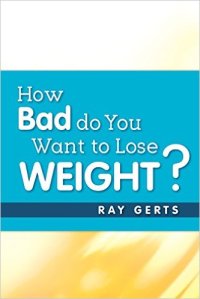"I'm trying to get rid of my stubborn belly fat. Can running help me lose it?"
A reader is looking for help losing fat and I'll tell her the truth. I know what your thinking, the runners you see are all slim and trim, so "if I run I'll get slim and trim". Maybe, not always, it all depends on the food you're eating.
I've mentioned this in other articles about running and weight loss, but running is not a sure-fire way to lose weight and, by the same token, it's not a guaranteed way to lose your spare tire, belly, pooch, or whatever else you want to not-so-affectionately call it. And it's also true that you won't lose fat from your abdominal area just by targeting your abs with crunches or other abdominal exercises.
To lose belly fat, you have to reduce your overall body fat. While running can help you lose fat, you'll have a lot more success by combining it with a healthy, low-calorie diet. And, even then, your genetics determine what areas will lose the fat first.
Strategies for Losing Belly Fat
Here are some tips for losing weight (and, as a result, belly fat) with running and a healthy, low-calorie, low-carb diet:
- Aim for at least 30 minutes of cardio in your Target Heart Rate Zone on most days of the week. To avoid burnout and injuries, alternate between running and cross training activities, such as cycling, elliptical trainer, dancing, swimming, or hiking.
- Some people find it helpful to track their daily steps. It takes an average of 10,000 steps per day to prevent weight gain, so aim for more than that when you're trying to lose weight.
- Incorporate entire body strength training into your routine twice a week. You don't even need access to fancy gym equipment – you can do some of these body weight exercises at home. Make sure you're doing upper body and lower body exercises, as well as core strengthening exercises.
- Write down everything you eat and drink to keep track of how many calories you're taking in and figure out what bad habits you need to correct. You'll be much less likely to go overboard if you know you have to write it down.
- Focus on making small changes to your diet, such as cutting out regular soda and adding more fruits and veggies.
- Try to avoid eating processed foods. The ingredients in packaged goods and snack foods are often loaded with trans fats, added sugar and added salt or sodium. All three things of those in excess can make it difficult to lose weight.
- Watch your portion sizes, especially after running, when you might feel tempted to eat a little extra because of all the calories you burned during your run. Have prepacked 100-calorie snacks ready at home, so you're not tempted to go overboard. When eating out, share meals — or eat half your meal and take the rest home.
- Check nutrition labels carefully. Just because a food is low in fat doesn't mean it isn't high in other things, like carbs and sugar. Foods such as salad dressings, marinades, mayonnaise, and sauces often contain hidden fat and lots of calories. It's best to eat natural foods. I try to avoid foods that come with a label. Buy fresh foods and organic if possible.If you really want to lose your body fat than look for my Ebook at the websites listed below. You'll get information on Healthy eating, exercise, and diet.“How Bad Do You Want To Lose Weight?” is available at all the online bookstores selling for $1.99. Go to any of the websites and search the title to find my Ebook. This book gives you all you need to lose weight without spending money on gym memberships, diet plans or meal plans. Look for my book. at Amazon.com, B&N.com, iBooks, Kobo.com, Scribd.com, or Gardner Books in the U.K.


/about/458222005-56aa05a83df78cf772ac0f31.jpg)

/about/102754868-56aa05b95f9b58b7d00081d0.jpg)



